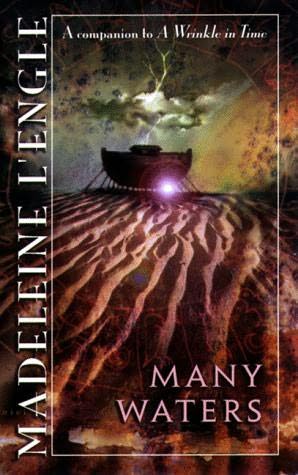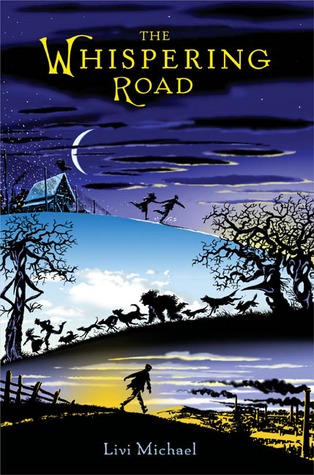In this strange postscript to the Time Quartet, we go back to a time before the events in A Swiftly Tilting Planet, and zoom in on the Murry twins, Sandy and Dennys, who (when I last read this series, after becoming a Potterhead), suddenly resemble Fred and George Weasley in my imagination. Until now they have not been really important characters, and their skepticism has always been a foil to the wonderful, cosmic adventures of their siblings Meg and Charles Wallace.
But now they are right in the thick of things, and it’s all because they ignore a sign on the door of their mother’s laboratory: “Experiment in progress. Please keep out.” Even if their parents had told them about their experiments in time travel, they would not have believed them. And so they are quite surprised to find themselves on the spot as Noah builds the ark.
And now that they’re personally involved in it, the Bible story which they’ve always thought of on the same level as Santa Claus and the tooth fairy, suddenly takes on a great deal of urgency. Now they have to play a role in the cosmic battle between good and evil that threatens to derail history-as-we-know-it, that threatens to prevent what is supposed to happen from happening. And they wonder whether they really want it to happen after all.
It’s interesting to see how L’Engle imagines the details of the Noah flood story from the perspective of 20th-century, too-bright-for-their-own-good youths. She puts her own characteristic twist on the biblical story, including a fictional daughter of Noah named Yalith, as well as the distinctive personalities of Noah’s wife and three daughters-in-law who, in the Bible, are not named, but in Many Waters are named Matred, Elisheba, Anah, and Oholibamah (I love the sound of that last name–and it is similar to an actual biblical name).
The twins offer the narrative an unusual point of view, since they are so slow to relinquish their skepticism about what is happening around them. It makes for a perplexing story with subtleties no one but the author, perhaps, can explain, but with a certain appeal too.
Though I myself with always regard Many Waters as the poor cousin of the original Meg-and-Charles-Wallace trilogy, it is an entertaining and thought-provoking story. Lovers of storybook magic will enjoy unique glimpses of manticores, griffins, and unicorns; and fans of the Bible (like me) will be intrigued by an insight into a very mysterious time in our world’s history, when seraphim and nephilim were involved in human affairs and woolly mammoths stood four feet tall. Anyway, once you’ve gotten your foot in the windy door of the Time Quartet (or Quintet), you’ll want to go all the way through it. Don’t take my word for it. Try it.


